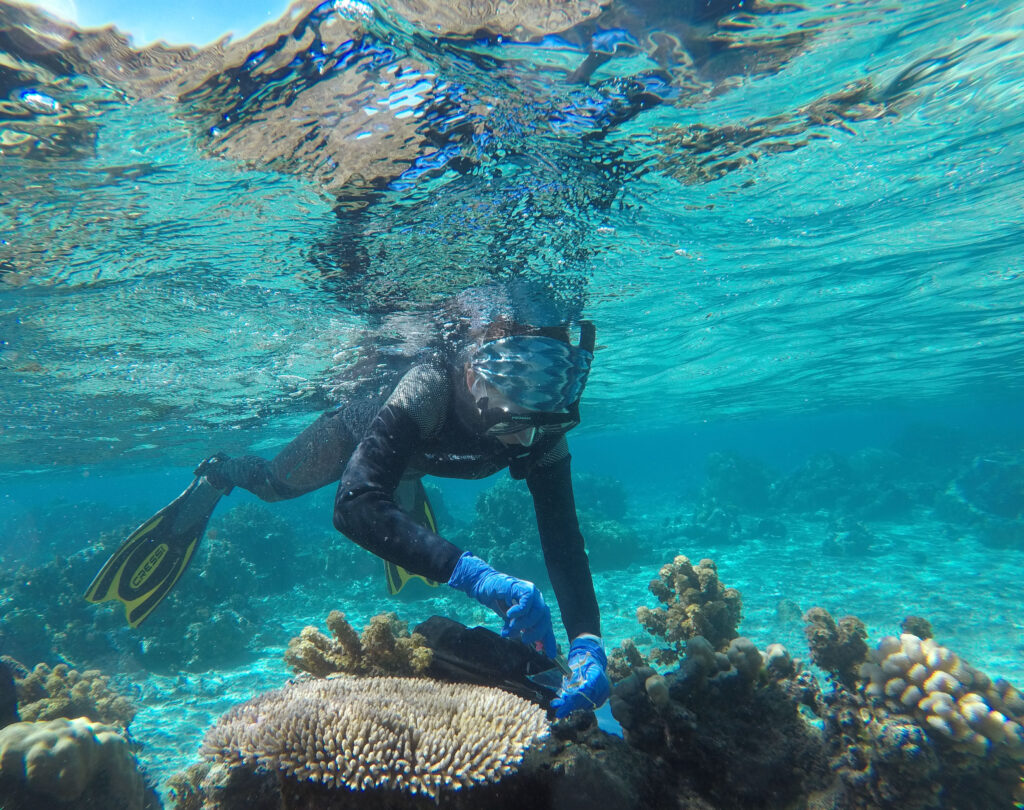Corals are among the best known ecosystem engineers in the ocean, where they shift otherwise oligotrophic environments to highly productive regions that fuel coastal economies. They are also among the most impacted habitats on earth from global climate change. Part of our research aims to better understand how they fit in overall reef function, now and in the future.

Among the greatest questions we aim to answer is how does the role of a stressed coral impact its role in biogeochemical cycling in reef habitats. Corals are epicenters of carbon and nitrogen cycling and yet their role in these processes are likely to change as a result of our warming oceans. Fundamentally, we would like to know how this will happen and if there are any feedback’s on their activity.

To examine this we use multifaceted approaches. Much of our research is focused on the island of Mo’orea in French Polynesia. This is an epicenter of research, hosting multiple research stations and the long standing Mo’orea Coral Reef Long Term Ecological Research Site (MCR LTER). This provides an incredible data set to immerse our research in, and a rich suite of collaborations to further our understanding of tropical marine systems.

For this project we sample around the island, analyzing microbial community in the context of the environment to better understand the role of microbes, corals, the microbes in corals, and the reef itself in a tropical habitat.
This work is supported by the U.S. National Science Foundation.

